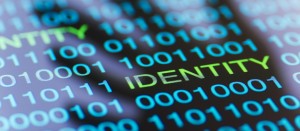 Today’s hyper-connected world, flooded by data, sees techno-social systems becoming ever faster and more computer-oriented. The largest and most powerful of these, the global financial market, interpreted digitization early on and is a leading sector in leveraging the computational power and analytical algorithms available in this phase of the digital revolution for its own interest.
Today’s hyper-connected world, flooded by data, sees techno-social systems becoming ever faster and more computer-oriented. The largest and most powerful of these, the global financial market, interpreted digitization early on and is a leading sector in leveraging the computational power and analytical algorithms available in this phase of the digital revolution for its own interest.
A key issue that has caught the attention of the major clients and stakeholders of the finance sector is the gaping hiatus between how the public and private sector owners and managers of large and strategic estates on one hand, and the banking industry on the other, access timely and rich transactional data, computational power, as well as intelligent instruments for transparency, accountability and control.
As they embrace today’s vision of a global digital economy, governments still lean by and large with confidence on the data intelligence directly provided by the finance sector. Financial flows are monitored by public authorities mainly to curb tax evasion and combat criminal activities. From a technology point of view, new initiatives strive to empower all members of the population with accounts and credentials supporting secure authentication and cashless transactions. But when it comes to providing an accurate representation of financial flows and the detail of transactions, major responsibility is deferred to the finance sector, the one and only source of the data describing all exchanges and their value.
In fact, even after the major wake-up call of 2008, the efforts of policy makers developing guidelines for the finance sector are mainly aimed at strengthening regulations. Of course this is necessary, but it is the short term requirement, not the key challenge. Little is said about the necessity to involve independent referees truly empowered with analytical instruments that can counterbalance the banking sector’s weight in terms of automatic intelligence. Even less is heard about the necessity to develop a new ecosystem where systems are set up to inform the estate owner (the citizen or the community) and work exclusively in his interest. This said, we are becoming aware that financial advice in the era of big data should carry more weight than a mere opinion. It should be backed with the intelligence of technologically-sound systems, capable of sanitizing data and simulating scenarios from “our” perspective. Moreover, it has become clear that financial advice should be truly independent and that we cannot ask financial institutions and their affiliates to teach us how to cure the disease of uncontrolled exposure to risk, hidden costs and mistakes. Even in healthcare the prescription of the cure is not directly made by the pharma industry.
Beyond this, in the era of advanced data intelligence, the finance sector is transitioning to a new set of challenges. These request urgent attention in order to protect the estate owners from rising threats of instability in the economy and from what is increasingly perceived as an exposure to the risk of resources being siphoned off from their estates via hidden costs, conflicts of interest and unethical practices. Not to mention that with today’s digitalization trend, society needs to be protected as a whole from the threat of an unprecedented system-wide financial collapse.
Having focused over the years on global issues such as the digital divide, policy makers are now confronted with the challenge of bridging the analytical divide that sees an unequal access to (and ability to process) rich, timely and independent information in sensitive domains.
We must keep abreast of the digital revolution. In the financial domain this translates into the necessity to create a secure and frictionless transactional ecosystem, where all parties are empowered to take informed decisions and performance is pursued rationally, taking scrupulous account of risks. Only when control is granted and the interest of all stakeholders is protected, can we aspire to develop an intelligent digital economy.
Sophie B. de la Giroday
